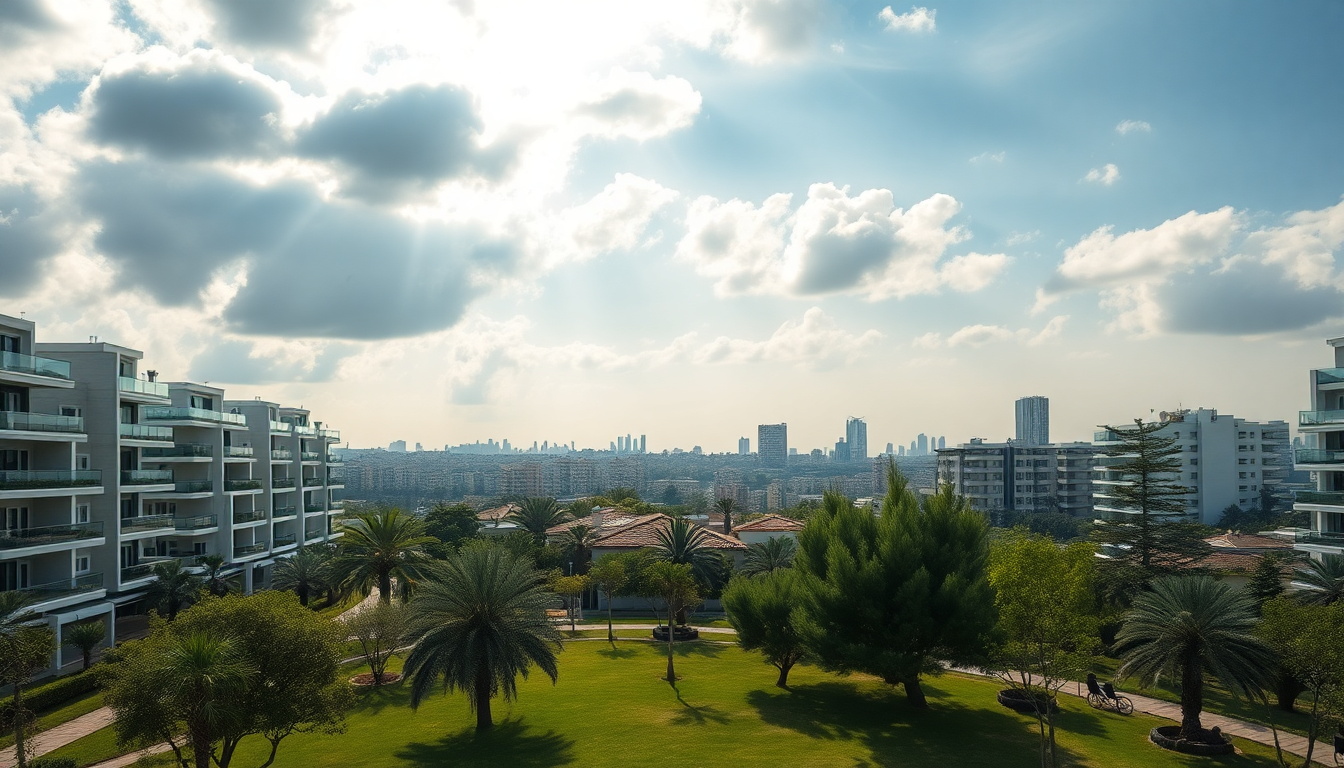Table of Contents
As military tensions in Israel escalate, many are left wondering how this turmoil will impact the national real estate market. With two decades of experience in luxury real estate, I can tell you that geopolitical events often shake up property values and investment prospects. So, if you’re an investor trying to make sense of this unpredictable landscape, a deep dive into the current situation is essential.
Current Market Overview Amid Conflict
With recent military actions and ceasefire agreements, the Israeli real estate market finds itself at a pivotal moment. The ongoing conflict—especially with Iran’s alleged missile launches—has fueled uncertainty among potential buyers and investors. Various market reports indicate that property values in affected areas might fluctuate as demand and buyer sentiment shift.
But here’s the interesting part: while some sectors might see a drop in interest, others could reveal unique investment opportunities. For instance, regions that have historically shown resilience during unrest may still attract savvy investors, particularly those eyeing long-term capital appreciation. Understanding these dynamics is key for making smart decisions in today’s market.
Analyzing Key Regions and Property Types
Not all areas in Israel are equally affected by conflict. For instance, properties in northern Israel might feel the immediate impact due to their proximity to military actions. Yet, historical data reveals that prime locations—think Tel Aviv and Jerusalem—tend to bounce back quicker after unrest.
Luxury properties that cater to international buyers often remain insulated from local conflicts, as wealthy investors look for stability in real estate markets. Conversely, commercial properties may see a temporary dip in demand, as businesses reevaluate their strategies amid ongoing tensions. Are you curious about how these shifts can affect your investment decisions?
Price Trends and Investment Opportunities
When conflict arises, property prices can swing dramatically. For investors, this creates a mix of challenges and opportunities. While an initial drop in values is common, markets historically tend to show resilience, often leading to a recovery once stability returns. Keeping an eye on these price trends is vital for pinpointing the right time to jump in.
Long-term implications of geopolitical tensions should also be on your radar. Properties in emerging neighborhoods might offer lucrative ROI opportunities as the market stabilizes. By conducting thorough due diligence and using market analytics, you can gain valuable insights into the potential risks and rewards in today’s climate.
Practical Advice for Buyers and Investors
If you’re considering entering the Israeli real estate market during these challenging times, a strategic approach is essential. Focus on properties with solid fundamentals—think location, condition, and potential for appreciation. Engaging with local real estate experts can also provide invaluable insights into emerging trends, helping you make informed decisions.
Diversifying your investment portfolio is another smart move. By including a mix of property types and locations, you can mitigate risks tied to geopolitical instability. Staying updated on international developments is crucial, too, as these can significantly influence local market conditions. Ready to take the plunge?
Medium-Term Forecasts for the Real Estate Market
Looking ahead, the medium-term outlook for the Israeli real estate market hinges on the resolution of ongoing conflicts and the overall geopolitical climate. If stability returns, we can expect a surge in buyer interest and potential price increases across various property segments.
The recovery phase could present unique opportunities for investors willing to navigate the complexities of this market. Keeping a close watch on economic indicators and market trends will be key to capitalizing on future growth and ensuring a robust investment strategy. Are you prepared to seize the moment?


